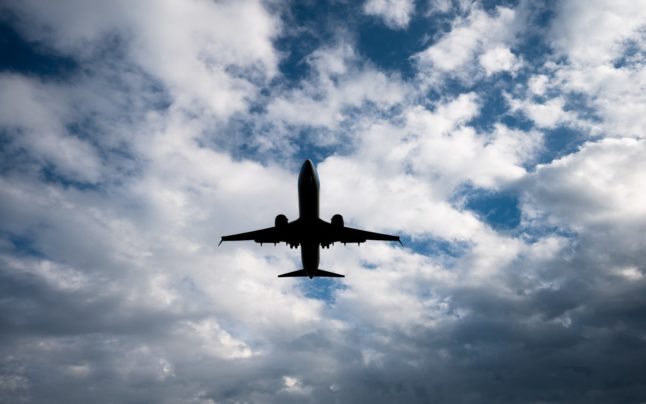At the moment kerosene fuel used in commercial air transport has been exempt from energy tax in Germany.
But for domestic flights, this tax privilege could soon be abolished, at least according to current plans from the German government, which is scrambling to make savings in the 2024 budget.
READ ALSO: From flights to shampoo – how life will get more expensive in Germany in 2024
Which flights would be affected?
Not much is known at the moment. What is clear, however, is that the plans are aimed at domestic air traffic in Germany.
Negotiations within the coalition on the budget agreement are continuing.
This week Finance Minister Christian Lindner raised concerns about the tax and said no final decisions had been made.
“We are examining very carefully the argument from the aviation industry, which fears that German airlines will be disadvantaged compared to foreign airlines,” he said. “There should be no discrimination against German companies.”
Currently, kerosene used in commercial aviation is exempt from energy tax. Agricultural and forestry businesses can request a refund of part of the energy tax paid for their fuel consumption.
Would the tax make flying more expensive?
It’s almost certain that a kerosene tax would make flying within Germany more expensive, because companies would likely pass the new tax on to customers.
It could also make letters and parcels more expensive if they are being flown on a fast-track service.
How high the additional costs would be depends primarily on the tax rate. Norway, for example, charges 13 cents per litre of kerosene. The EU Commission is planning up to 45 cents. If the tax of 65 cents per litre, which is due in Germany on non-commercial flights, was levied, fuel costs on domestic flights would shoot up.
With an average consumption of three litres per passenger per 100 kilometers, a flight from Frankfurt to Berlin (420 km) would result in additional fees of around €8.20 per passenger, according to German media calculations.
So not a huge amount – but given that there are already several taxes on flying, it may be a bitter pill to swallow.
What’s the reaction?
Airlines and airports are up in arms about the prospect of further cost burdens that would make airfares in Germany more expensive.
The German market is already lagging behind other countries in the wake of the pandemic due to high taxes, the industry says.
Plus critics fear it would make Germany even less attractive for stopovers.
According to German news magazine Focus, the tax could be avoided for example, by making a stopover in a neighbouring country on a previously domestic German route. An example of this would be the route from Munich to Berlin, for which a stopover could be made in Paris or Brussels.
Airline Lufthansa says it will put it at a competitive disadvantage.
“Additional taxation within Germany would act like an economic stimulus programme for connecting flights outside Germany,” Lufthansa CEO Carsten Spohr told the Süddeutsche Zeitung.
“We are already seeing effects: while air traffic in other European countries such as France, Spain and Italy is back at or even above the 2019 level, we are only reaching 80 percent in Germany due to the highest location taxes,” said Spohr.
Doesn’t Germany want to discourage flying domestically anyway?
Domestic flights are considered to be particularly harmful to the climate. In relation to the distance travelled, more take-offs and landings are necessary, which then consume a large amount of fuel.
Policymakers and politicians in Germany in recent years have been trying to encourage people to take the train instead of taking a short flight when possible.
Andreas Audretsch, deputy leader of the Green Party, defended the planned introduction of a kerosene tax for domestic flights, saying that it would mainly affect business travellers flying frequently on domestic flights. He added that it could lead to a positive effect on the environment.
What about other taxes?
The German aviation tax, plus the higher charges at airports, have resulted in an ongoing debate in Germany about the sharp rise in flight costs.
The aviation tax is payable for every passenger travelling by air from a German airport, regardless of whether they are flying domestically or abroad. However, no tax is levied on arriving passengers.
READ ALSO: Why are flights in Germany so expensive?
Since January 2023, passengers departing from Germany have been paying a surcharge of €12.73 for a short-haul flight of up to around 2,500 kilometres, €32.25 for medium-haul flights of up to 6,000 kilometres and €58.06 for long-haul flights.
There are similar air traffic charges in Austria, for example, but not in most other countries. On European routes within the EU, there is also a CO2 tax, calculated according to the carbon dioxide emitted during the flight.



 Please whitelist us to continue reading.
Please whitelist us to continue reading.
Tax, tax, tax. The European solution to everything.